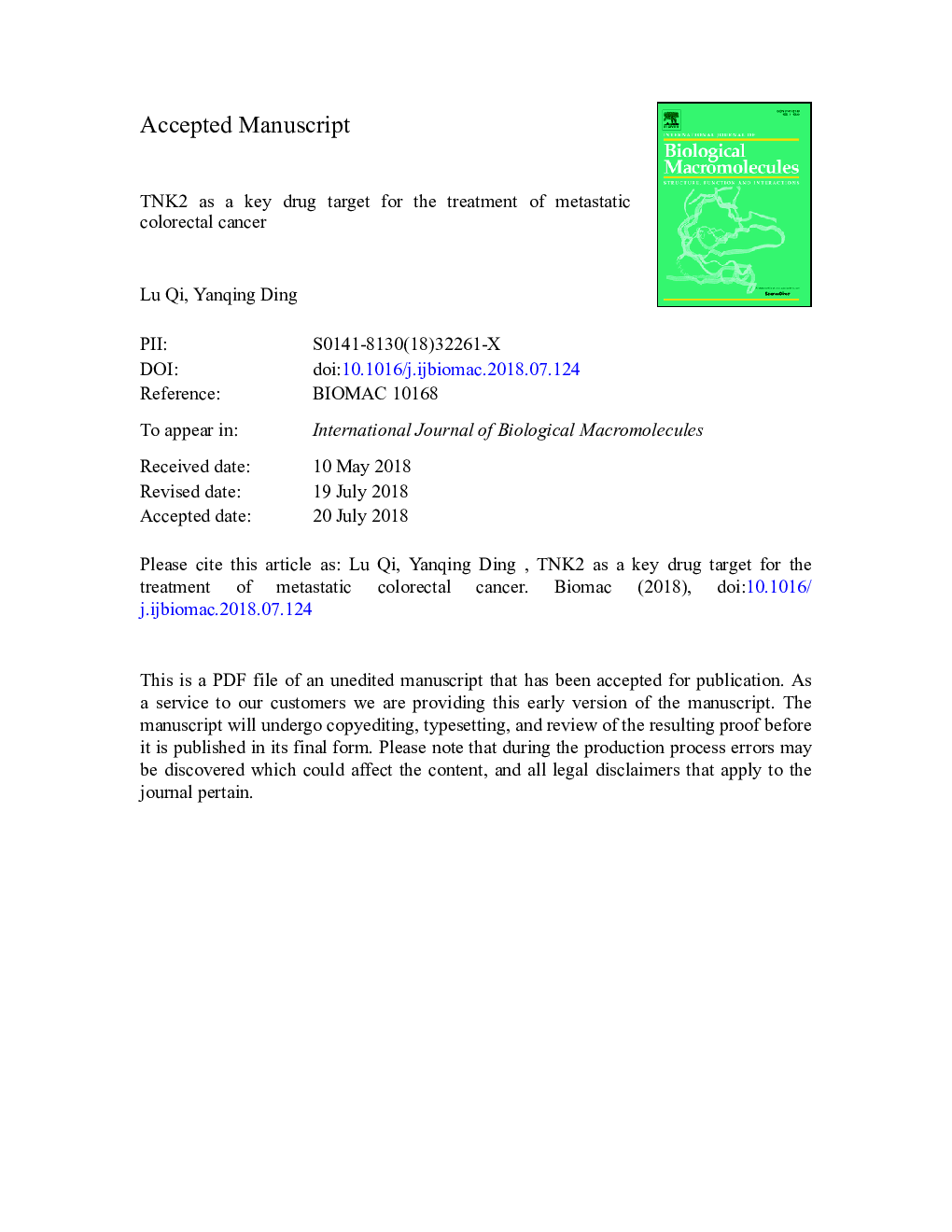| Article ID | Journal | Published Year | Pages | File Type |
|---|---|---|---|---|
| 8326647 | International Journal of Biological Macromolecules | 2018 | 16 Pages |
Abstract
Currently, few small molecular compounds are being used as therapeutic targets in the treatment of metastatic colorectal cancer (CRC); therefore, there is an urgent need to identify novel drug targets, which could be used in the treatment of CRC. The Connectivity Map (cmap) web server was used to correlate the differentially expressed genes of CRC with the small molecular compounds related to the disease. Thus, we identified six small molecular compounds to be potentially relevant to the development of CRC. Target protein analysis revealed that TNK2 is a common target of the three small molecular compounds, which were included in the set of six small molecular compounds mentioned earlier. In addition, the continuous activation of TNK2 was observed in the development of CRC. This indicates that TNK2 may have the potential of being a key drug target in the treatment of metastatic CRC. The Molinspiration tool was used to analyze small molecular compounds, which are bound to TNK2 in the Protein Data Bank (PDB). We found that a small molecular compound in protein with the PDB identification code 4EWH had higher scores in terms of kinase inhibition but lower scores in terms of other biological activity indices. This indicates that the compound had good kinase specificity, which is a key characteristic of other existing clinically approved anti-tumor small molecular compounds. By performing target protein prediction analysis, we identified 122 target proteins of the small molecular compound in 4EWH. Out of the 122 target proteins, 21 proteins showed kinase activity, including TNK2. Enrichment analysis was performed on the diseases in which these 122 target proteins were involved, and the results revealed that CRC had the highest correlation. Moreover, 47 target proteins were individually correlated with the progression of CRC. This further suggests that the small molecular compound can inhibit CRC. Thus, TNK2 was considered as a potential drug target in the treatment of metastatic CRC.
Related Topics
Life Sciences
Biochemistry, Genetics and Molecular Biology
Biochemistry
Authors
Lu Qi, Yanqing Ding,
